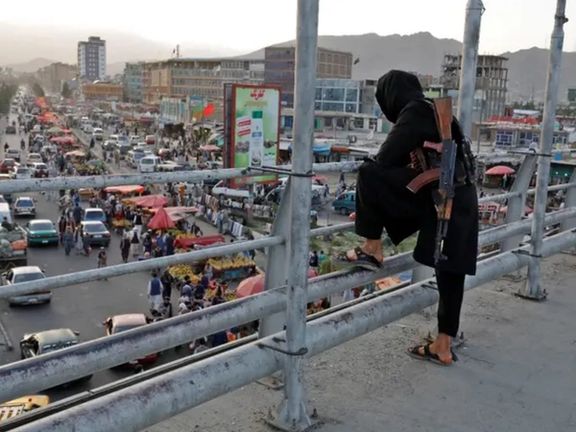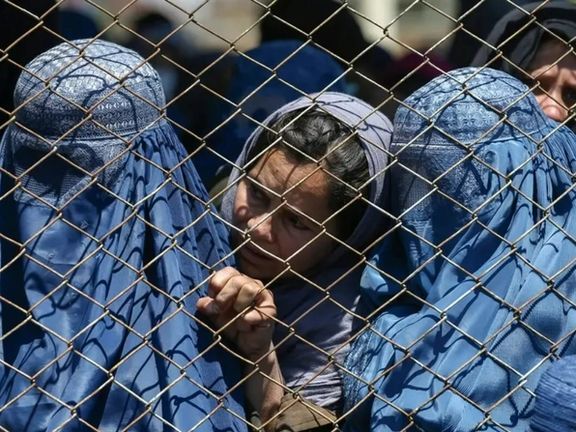The report, published on Monday, indicates that the victims included former government employees, women, children, tribal elders, and Taliban opponents. Additionally, at least 128 others were injured across 30 provinces in Afghanistan.
The report reveals that among those killed, 178 were men, 44 were children, and 17 were women.
Rawadari noted a 28.8% decrease in such incidents compared to the same period last year, which saw 516 cases. However, the organisation attributes this decline to severe restrictions on information access and the Taliban's efforts to conceal targeted, suspicious, and extrajudicial killings.
The report suggests that the ruling group employs force, intimidation, and fear to suppress information about these incidents.
Civilian Casualties in Explosive and Suicide Attacks
The report highlights that in the first half of 2024, targeted explosive and suicide attacks resulted in the deaths of at least 34 civilians and injuries to 35 others in Kabul, Kandahar, Nimroz, and Bamiyan provinces. This represents a 73.8% decrease from the 111 civilian deaths recorded during the same period last year.
However, landmine explosions and leftover war explosives killed 49 civilians and injured 56 others in the first half of this year, marking a 66.6% increase from the previous year.
Targeted, Mysterious, and Extrajudicial Killings
Rawadari reported that in the first six months of this year, at least 193 individuals, including 181 men, nine women, and three children, were deliberately and extrajudicially killed or injured by the Taliban or unknown assailants. This represents a 43.5% decrease from the previous year.
The report identifies the perpetrators as "the Taliban and unknown armed individuals" but notes that the Taliban often attributes these killings to "unknown armed individuals”.
Over the past three years, the Taliban has not provided any information on legal actions taken against those responsible. Additionally, the Taliban has used force, intimidation, and threats to prevent the dissemination of information about these extrajudicial killings.
The report also reveals that at least 51 former government employees and their family members were targeted in extrajudicial killings or injuries in the first half of this year, a slight decrease from 55 cases last year.
Rawadari criticised the Taliban for failing to adhere to its "general amnesty" decree, instead using it to target former government personnel. The organisation also reported that four civilians were killed this year on charges of collaborating with opposing groups.
Increase in Arbitrary Detentions
In the first six months of this year, Rawadari reported that at least 614 people, including 33 women, were arbitrarily and illegally detained, more than doubling the 222 cases recorded during the same period last year.
The organisation condemned the Taliban for disregarding international human rights standards and legal procedures in its widespread practice of arbitrary detention. The detained include former government employees, Taliban opponents, civil activists, and journalists.
Violations of Human Dignity
Rawadari noted that the Taliban has extensively violated human dignity, including acts of torture and mistreatment of prisoners.
The report emphasises the lack of access for human rights organisations to Taliban prisons, which restricts the ability to obtain specific statistics.
Released prisoners have been threatened against disclosing details about their treatment in detention.
In the first half of this year, 12 people reportedly died in Taliban-controlled prisons due to severe torture, with at least 10 others hospitalised for similar reasons—a 20% increase from the previous year.
The report highlights the absence of independent oversight and mechanisms for addressing the human rights of prisoners in Taliban-controlled facilities.
Increased Restrictions on Women and Girls
The report details that the Taliban has not only banned girls above the sixth grade from attending school and universities but has also engaged in broader discrimination and repression against women and girls.
At least 13 educational centres, including online schools, providing opportunities for girls above the sixth grade were closed in the first half of the year. Additionally, 82 managers and students from these centres were detained.
Rawadari noted that the Taliban's policies have resulted in widespread human rights violations, including the exclusion of vulnerable ethnic and religious groups from equal access to government services and national resources.
The organisation called for active and effective involvement from the international community to address the deteriorating human rights situation in Afghanistan.
Rawadari urged the Taliban to adhere to international agreements and cease further violations of Afghan citizens' fundamental rights.






